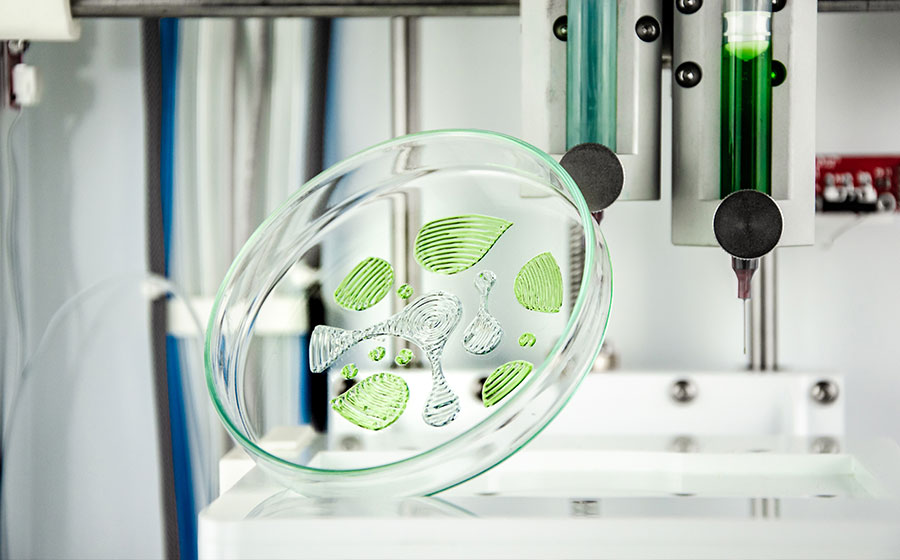Creation of 3D printing technology from biomaterials and construct a 3D bioprinter for automated creation of bionic organs

Project summary
The main goal of the project is to create a technology for printing from biomaterials and construct a 3D bioprinter for automated creation of bionic organs. Our innovative 3D bioprinter is expected to be the world’s first 3D bioprinter tailored for clinical applications – it is constructed with the end customer in mind, not just laboratory research. It will enable the creation of large constructs containing biological components such as bionic organs. The innovativeness of our 3D bioprinter on the scale of the Polish market and foreign markets is undeniable, because until now no 3D bioprinter for clinical applications with A-class purity and similarly large working volume has been developed.
Our product in the market is distinguished by: an integrated incubation chamber, acceleration of printing by using several heads, large volumes and orientation to the end customer – surgery and transplantation instead of the laboratory.
Our cutting-edge product will simplify technically complex medical procedures and, above all, provide new opportunities in creating personalized organs for research and transplantation. Due to the involvement of end users in the process of improving our product, new areas of application of our technology are certain to emerge.
The main recipients of the implementation will be: medical and pharmaceutical companies, hospitals and clinics, R&D centers. The result of the project, i.e. the 3D bioprinter, is a novelty on the scale of the European market, but the technological solutions and key technical parameters used will be an innovation on a global scale. The main objective of the project is to create the first Polish 3D bioprinter to be used in hospital facilities, including transplantation centers i.e. bioprinting of blood organs, or bioprinting of skin, and institutes and hospitals of ophthalmology, cardiology and orthopedics, e.g. bioprinting of corneas, heart valves and bones.
In addition, the 3D bioprinter will be used by pharmaceutical companies in preclinical research, e.g. in assessing toxicity and/or testing the effectiveness of potential drug products.
Market size
It should be noted here that the preclinical research market is about 12% of the drug research market, which reached a total of $54 billion in 2021 with annual growth of about 12%. That is, the average growth in the value of the preclinical research market will be an estimated $6.5 billion per year. Printing tissues in multilayers or organoids, i.e., organs on a smaller scale, will allow for the imitation of the function of internal organs under physiological-like conditions, and will therefore make it possible to reduce animal testing (though not eliminate it). With current global trends, including the 3Rs principle, which states, among other things, to reduce the use of animals in preclinical and basic research, our bioprinter fits in with the bioethical approach to the problem.
In addition, the bioprinter will make it possible to print an organ on a smaller scale, a so-called “test organ,” where, prior to the main process of bioprinting a functional organ, it will be possible to pre-assess the function, or to assess the risk of transplant rejection (e.g., by incubating the test organ with the recipient’s blood and assessing the immune response).
This is a potential scenario for the future of clinical trials, when this will be an obligation as part of personalized therapy.
Current value of the project
Cost of research and development: PLN 9,895,000 (including funding from the National Research and Development Center in the amount of PLN 8,585,000, project no: POIR.01.01.01-00-0166/20).


